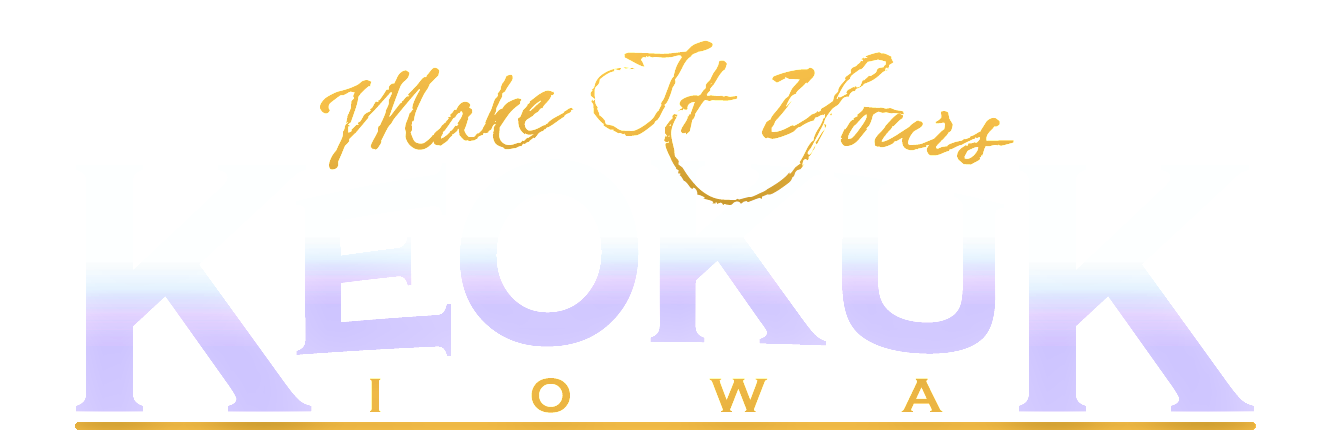Development and Improvement Incentives
Important: If you are planning on using one or more of the incentives listed in the Small Business Guide, you should first check with Main Street Keokuk, Inc., the Keokuk Area Chamber of Commerce, or the City of Keokuk to determine eligibility.
Iowa law allows cities and counties to abate local property taxes for value-added to industrial real estate. The maximum amount of actual value-added at a new or expanded facility, which is eligible to be exempt from taxation, is:
First year: 75%
Second years: 60%
Third year: 45%
Fourth year: 30%
Fifth years: 15%
Keokuk Downtown Urban Renewal TIF Rebate
The Keokuk Downtown Urban Renewal Plan Tax Increment Financing Rebate is for businesses that improve their property’s assessed value by at least 15%. Qualified businesses receive a 90 percent rebate on the incremental difference in taxes. The plan is for a specific downtown area that includes the commercial district from Water Street to 14th Street.
Keokuk Urban Revitalization Program (residential)
The Urban Revitalization Tax exemption program provides a three year total exemption from property taxation for qualified real estate. Qualified residents who improve their qualified property’s assessed value by 10% will receive 100% abatement on the incremental difference in taxes.
Keokuk Revolving Loan Fund:
The Keokuk Revolving Loan Fund is used to make low interest loans up to $100,000 for gap financing to qualifying individuals, partnerships, or corporations that want to start a new business in Keokuk. The RLF is a community financing tool used to encourage small business development and entrepreneurship, and is administered through the Southeast Iowa Regional Planning Commission (SEIRPC). The Keokuk RLF was created by the City allocating $100,000 and a USDA_RD grant of $99,000. Funds are used in conjunction with local lenders to serve as gap financing for proposals and the lender serves as the primary source of funding. As loan payments are made, and monies are repaid to the pool, the fund revolves back out to other candidates for the program.
-Eligibility is based on the following:
• Startup or expanding business in the city limits
• Applicant must be creating or retaining jobs
• Applicant must demonstrate the need for gap financing or local match funding
• Applicant proposal will support and enhance the local economy
-Financial Assistance:
• Maximum loan award – $25,000
• Cost per Job – $10,000
• 5-7 year term on fixed asset loans
• 10 year maximum on real property loans
• Competitive interest rates
• Loan closing fee of $250
Regional Revolving Loan Fund:
Southeast Iowa Regional Planning Commission administers a loan fund available to qualified businesses in Lee County. The Revolving Loan Fund (RLF) assists eligible businesses in retaining and creating private sector job opportunities. Approved applications may acquire funds for initial loans, or for loans to buy down the principal or interest on commercial loans. The maximum (RLF) loan is $250,000, at lower than conventional interest rates.
New Jobs Withholding Tax Credit (Pilot City)
The Targeted Jobs Withholding Tax Credit Pilot Program is a new pilot program enacted in 2006 which allows the diversion of withholding funds paid by an employer to be matched by a designated “pilot” city to create economic incentives that can be directed toward the growth and expansion of targeted businesses located within Urban Renewal areas.
An approved “pilot” city may enter into a withholding agreement:
- with a business that is locating to its community from another state and is creating targeted jobs within an urban renewal area; or
- an existing Iowa business that is creating ten new targeted jobs or makes a qualifying investment of $500,000 within an urban renewal area.
For purposes of this program, a targeted job is defined as a job with a business that is or will be located in an urban renewal area of a designated “pilot” city that pays a minimum wage equal to the county-wide average wage ($14.82 for Lee County). A “pilot” city entering into a withholding agreement is required to provide a $1 match for every withholding dollar received. This match can be provided by a private donor, the “pilot” city, the employer, or a combination of all three; and can be either in the form of cash or in-kind contributions to be used for the project. The withholding agreement allows an amount of up to three (3) percent of the gross wages paid by the business to be directed to the “pilot” city on a quarterly basis. All designated withholding funds and those pledged by the “pilot” city are required to be used for an urban renewal project related to the employer pursuant to the terms of the withholding agreement. A “pilot” city must obtain approval of the project from the Department of Economic Development prior to the execution of any withholding agreement. The maximum term of a withholding agreement is ten years.
